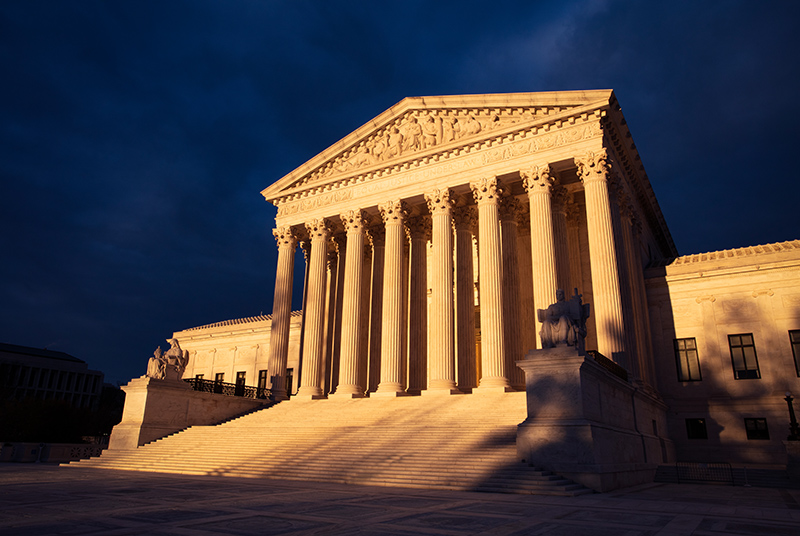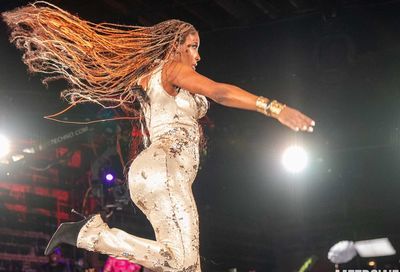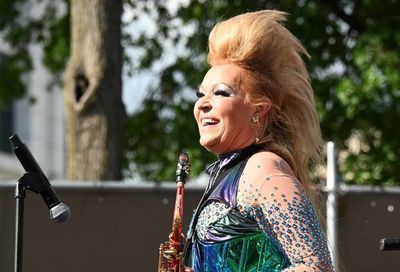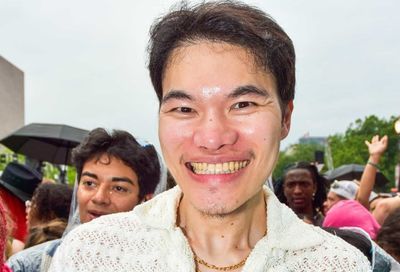West Virginia Could Criminalize Trans Visibility
LGBTQ advocates are concerned about two West Virginia bills defining transgender performances or displays as "sexually explicit."

Two West Virginia bills aimed at protecting minors from “obscene” performances and materials could end up penalizing transgender visibility under the bills’ definition of what constitutes “sexually explicit” matter.
The bills, introduced by State Sen. Michael Azinger (R-Vienna), seek to prohibit obscene or sexually explicit materials in or within 2,500 feet of schools and would bar minors from being present for obscene performances or displays.
Both bills define “obscene matter” as material that appeals to the prurient interest, that depicts or describes sexually explicit conduct, or lacks “serious literary, artistic, political or scientific value,” in keeping with common elements of obscenity laws.
But both bills also define “displays of an obscene or sexually explicit nature” as including, but not limited to, “any transvestite and/or transgender exposure, performances, or display to any minor.”
No other type of performance or specific sub-group of people is mentioned in the bill.
Critics of the bills say that, as introduced, the bills would criminalize transgender visibility, as acknowledging the mere existence of a transgender person could be deemed “exposure” to transgender-related material or topics, and thus be deemed “obscene” or “sexually explicit.”
Under the first bill, SB 252, which is largely aimed at prohibiting sexually explicit or obscene materials like books, curricula, or unrestricted Internet content in schools, violators would be charged with a misdemeanor, carrying a fine of up to $500 or up to one year in prison.
Jack Jarvis, the communications director for the LGBTQ advocacy group Fairness West Virginia, told NBC News that the organization has already heard from transgender school employees working in various capacities who fear they’ll be forced leave their jobs or be fired if that bill passes, as their mere proximity to schools and children might be deemed inherently “sexual” and thus outlawed under the bill.
“They don’t know if this means they’re going to have to leave the state or leave their jobs, or if they’re going to be thrown in jail just because they are trans around a young person,” Jarvis said.
A spokesperson for Azinger’s office was not immediately available to respond to an inquiry seeking clarification on whether the bill’s definition of obscenity would force transgender school district employees to vacate their jobs.
Under the second bill, SB 278, which mirrors legislation introduced in at least eight other states seeking to bar minors from attending drag performances or ban public displays of drag, cross-dressing, or gender-nonconformity, violators could be fined up to $1,000 or face prison times. Venues that allow minors to be present for performances that are defined as “obscene” or “sexually explicit” could face a public nuisance complaint, which could open the venue to being sued and potentially forced to pay a $1,000 tax penalty.
Azinger has also introduced a third bill, SB 253, that would make it a criminal offense to engage in an “adult cabaret performance” — defined to include “male or female impersonators who provide entertainment that appeals to the prurient interest” — in any space where it might be viewed by a minor.
Due to Azinger’s perceived hostility towards gender-nonconforming people, some LGBTQ advocates have speculated that state regulators and judges who are empowered by SB 252 and SB 278 will go beyond the text of the legislation and begin deeming any vocal, musical, or dance performance by a transgender or gender-nonconforming person — even those that do not involve revealing clothing or dance moves mimicking sexual acts — as “obscene” and subjecting the alleged violators to prosecution and penalties.
Andrew Schneider, the executive director of Fairness West Virginia, compared the bill to Florida’s “Parental Rights in Education” law, dubbed the “Don’t Say Gay” bill by critics, “but on steroids.”
“[These bills] seem like they’re about protecting kids from harm, but really it’s a ploy to erase LGBTQ people from public life,” Schneider said. “It’s a scare tactic that we see all the time, but even scare tactics have a real impact on our community.”
West Virginia lawmakers have introduced at least 10 bills this session targeting the LGBTQ community. One of those bills would allow 15% of voters in a city to recall “any ordinance or city code provision” that was previously enacted.
Although the bill doesn’t specifically mention LGBTQ-related issues, it appears to primarily target LGBTQ-inclusive nondiscrimination ordinances, which have passed in 18 different cities and have been the rare examples of progress for LGBTQ rights in West Virginia.
“They’re basically giving veto power to the fringe elements in any community,” Schneider told NBC News.
Support Metro Weekly’s Journalism
These are challenging times for news organizations. And yet it’s crucial we stay active and provide vital resources and information to both our local readers and the world. So won’t you please take a moment and consider supporting Metro Weekly with a membership? For as little as $5 a month, you can help ensure Metro Weekly magazine and MetroWeekly.com remain free, viable resources as we provide the best, most diverse, culturally-resonant LGBTQ coverage in both the D.C. region and around the world. Memberships come with exclusive perks and discounts, your own personal digital delivery of each week’s magazine (and an archive), access to our Member's Lounge when it launches this fall, and exclusive members-only items like Metro Weekly Membership Mugs and Tote Bags! Check out all our membership levels here and please join us today!






























You must be logged in to post a comment.